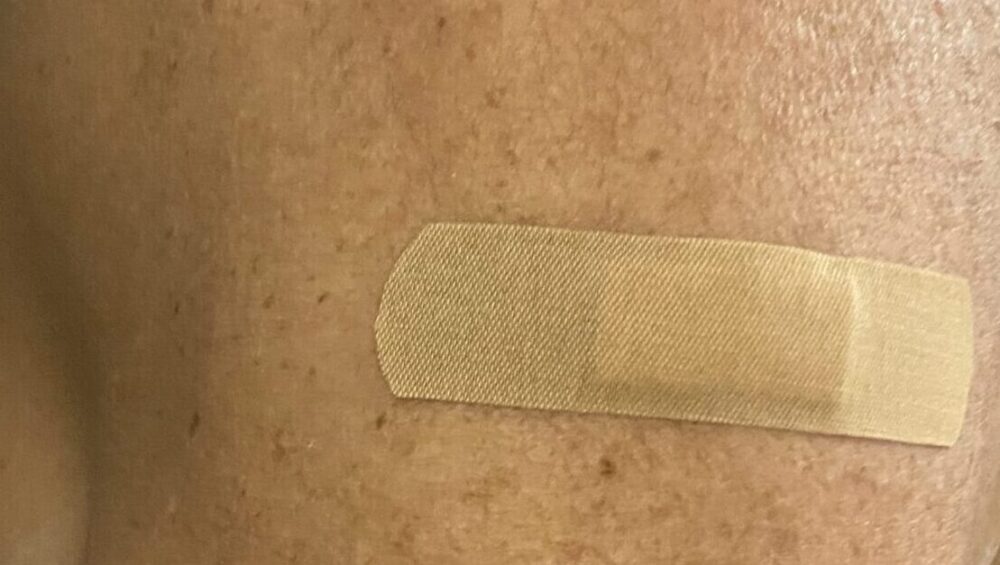Recently, I strolled over to a local chain drugstore to get my seasonal influenza shot. There was little waiting and no out-of-pocket expense, thanks to my comprehensive (albeit costly) medical insurance. Back in March I received two doses of the Pfizer-BioNTech vaccine for COVID-19 exactly three weeks apart, without any side effects to speak of; a third “booster” jab is in the cards for this autumn.
During my lifetime I’ve been inoculated against smallpox, polio, tetanus, diphtheria, pertussis, typhoid fever, hepatitis A and B, shingles and pneumococcal disease, among others. I’m fairly certain that, so far, I’ve never suffered from smallpox, polio, tetanus, diphtheria, pertussis, typhoid fever, hepatitis A and B, shingles, pneumococcal disease, or even the flu. Nor have I endured an acute reaction from any of these treatments.
Months before the COVID-19 vaccines were available to me, I began protecting myself by wearing a mask whenever in close proximity to people outside my household; for almost two years I’ve rarely logged a temperature above 98.3 degrees Fahrenheit! Upon returning from Japan in February 2020, I was bewildered by the resistance in North America to the use of cheap, almost weightless masks, which seemed a likely reason why East Asian countries had limited the spread of the novel coronavirus quite well. The opposition to COVID-19 inoculation is a more complex matter altogether.

Ever since Edward Jenner pioneered immunization against smallpox in the late 18th century, fear has spawned powerful vaccine foes. Long before Robert F. Kennedy, Jr., became the contemporary face of the movement, the National Anti-Vaccination League rose to challenge Britain’s compulsory-vaccination laws. But the safety and efficacy of medications have improved tremendously over the decades. Often featuring some ludicrous claims, the central thesis of most “anti-vaxxers” – that the injections are more dangerous than the diseases they’re meant to prevent – has never been less valid.
(It’s a credit to medical science that the last time I inquired, a virologist said the risk of getting infected with smallpox from inoculation was greater than by living unvaccinated because the once-dreaded disease had been virtually eradicated – by vaccines!)
On the other hand, is it illogical for informed people to reject questionable Chinese, Russian or Indian vaccines — or even hold out for an mRNA vaccine from Pfizer-BioNTech or Moderna when only those from AstraZeneca and Johnson & Johnson are offered? As for me, I would gladly accept the first one available and approved by credible regulatory authorities. Yet this obviously high comfort level has a rather old backstory that needs telling.
Perhaps my earliest childhood recollection is of a trip to Atlantic City with my sister Reissa, my mother’s young sister Ruth, and my parents. All I remember of it was watching my mother and father ride off in the motel’s golf cart, presumably to tour the property. My attempts over the years to reconstruct the trip became a Rashomon-like experience, as all of the participants recalled certain details differently.
However, everybody agreed on why our Atlantic City vacation ended so badly. It was the late 1950s or early 1960s, and Reissa, Ruthie, Mom and I had all been immunized for polio – but not my father. Dad fell deathly ill, although he was fortunately spared the paralysis often associated with that sickness. I heard that Uncle Ralph drove down from Montreal to bring the children home while Mom waited as my father recovered well enough to return.
When asked why my dad alone was unvaccinated, my late mother always gave me the unsatisfactory answer that he was too busy with work. Since then, he has confessed to believing that he really didn’t need it. “I thought I was a big shot, and it almost killed me,” he stated, having learned the proverbial hard way. And so earlier this year, at the age of 88, he rolled up his sleeve twice for Pfizer-BioNTech jabs without hesitation.
